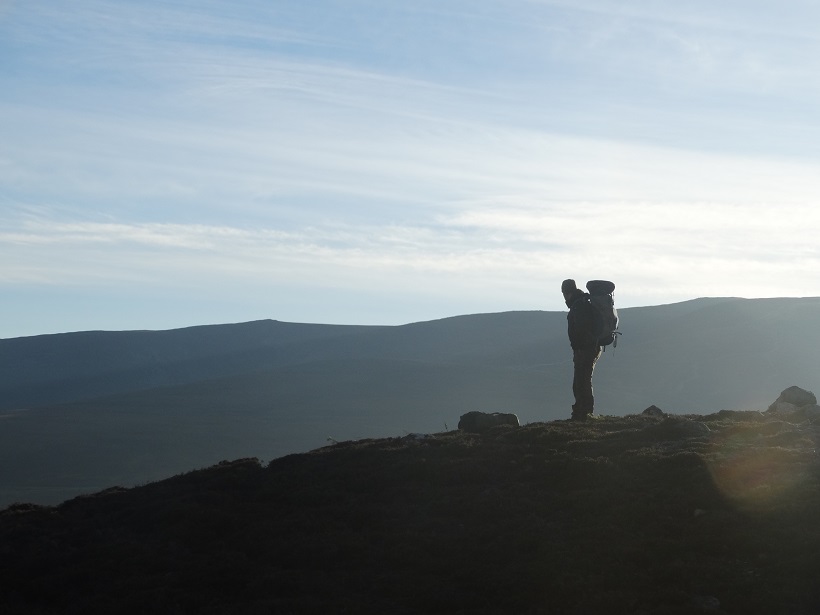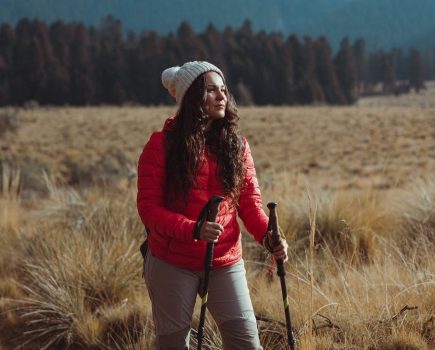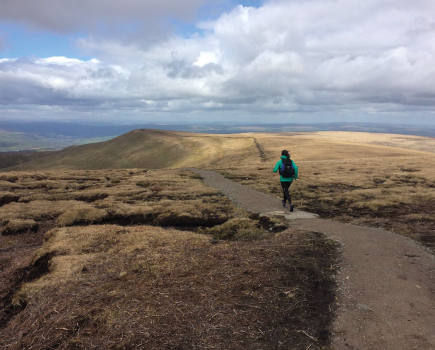Chris Townsend details the joys of walking alone in the hills, plus get our eight bits of advice for trying it for the first time
“Why solo walking and camping? What makes going alone special? I think it’s because it’s only when you are on your own that you can really experience the natural world, really experience the landscape. At least that’s how it is for me. Solitude allows me to feel aware of the world around me and in touch with nature.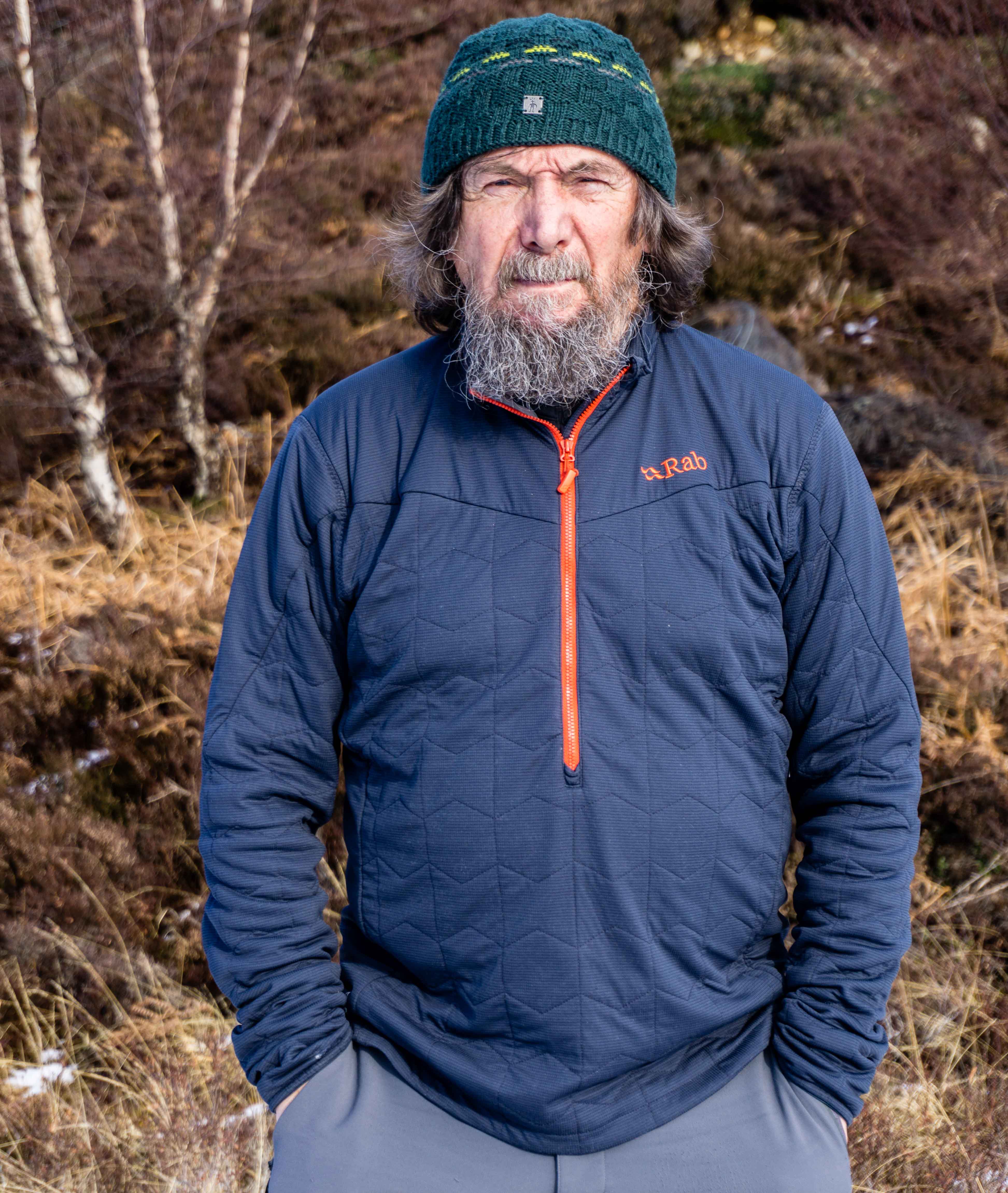
An obvious reason for this is the lack of distraction from companions. When I walk with others a key part of the trip is being with them and sharing the experience with them. Nothing wrong with that of course but it does create a barrier between you and nature, a barrier that’s there even if you walk in silence or far apart much of the time. Just the presence of another person changes the feeling of the walk and the connection with the wild. Alone I see more, notice more. The details of the world become clear.
“Going solo gives the freedom to make decisions on the spur of the moment, to change plans at will, without the need to consult a companion. This freedom makes me feel more at home in the wilds because I’m able to react immediately to how I feel and to the weather, wildlife, scenery and more. If it rains in the morning I can delay departure, lying in the tent listening to the rain on the flysheet. If my camp is in a beautiful spot I can spend an hour or more just sitting there or wandering slowly round the area absorbing the feel of the place before starting out for the day.
“Once underway I can stop whenever I like, make camp early because I’ve found a site too good to miss, or walk long into the night because I’m feeling energetic – as on a memorable occasion in the Cairngorms when, instead of stopping at my intended camp site I kept on as night fell, climbing steadily towards the summit of Braeriach. Stars appeared in the sky. The moon rose and lit the land with its pale cold light. I felt strong and energised. I didn’t want to stop walking.” Chris Townsend
Things to consider when planning to walk alone
Plan ahead
“Self-reliance and solo walking can be the most rewarding and fantastic experiences but sensible precautions and plans make sense as the mountains are not benign,” says Mike Margeson, Vice Chairman and Operations Lead of Mountain Rescue England and Wales. Spend plenty of time plotting your route at home before leaving for the hill. Read up on the route and on the hills. Check weather forecasts and build your plans around them.
Start easy
If you’re not used to walking alone, start with areas or hills that are familiar to you or popular routes where you know you’re likely to run into other people.
Gear up
Consider what you carry carefully. There won’t be anyone else around with a spare first aid kit or extra food. But don’t overburden yourself either – going lightweight can be tremendously liberating and enable you to walk faster, should you so choose.
RELATED: Choosing a tent for solo camping
Consider timing
An early start gives you more opportunity to be flexible and the time and space to handle any navigational challenges or other issues that arise. Long summer days give you more leeway than the shorter hours and more challenging conditions of the cooler months.
Err on the side of caution
Follow your instincts – if a situation feels wrong, it’s probably for a reason. Challenging terrain like scrambles, snow and especially river crossings can be more dangerous on your own, particularly as there’s nobody to help if you do run into bother.
Know your nav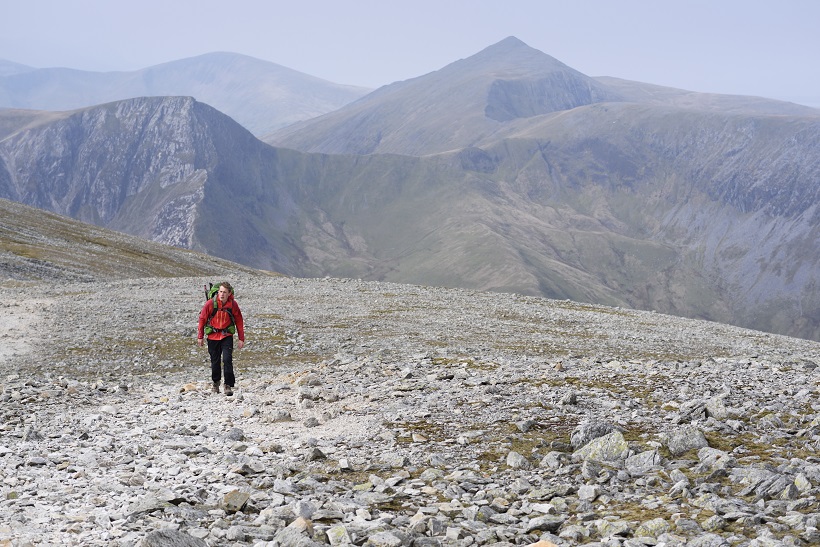
Make sure you’re confident with the navigation required to complete your walk. Don’t rely on a GPS – they can run out of battery very quickly. Take a map and compass and use a GPS or phone as back-up.
Keep in touch
Make sure someone knows where you’re going, and don’t forget to contact them when you’re down, or even during the day – especially if you know your mobile signal might be poor later.
Be prepared
If there’s any chance that you could end up benighted, take a bivvy bag and enough supplies to cope with an overnight.

